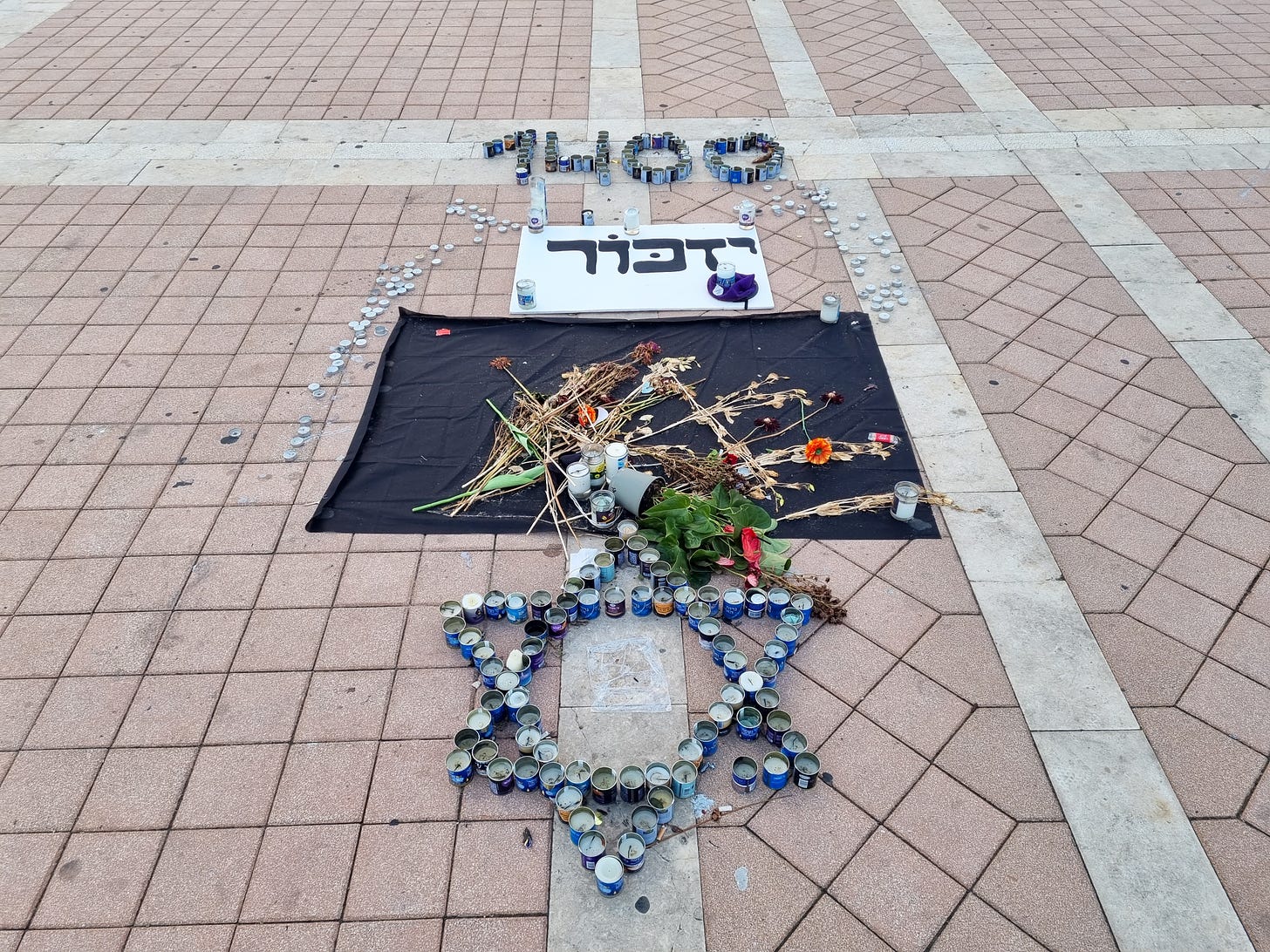A year after Hamas' massacre, a roundup of Israel's probes into its largest intelligence failure

Hamas dragged us into its underworld on Oct 7 last year. Since then, death has been all around us. First, in some 1,200 people in Israel who Hamas slaughtered. Today, with more than 40,000 Palestinians and 347 Israeli soldiers killed since the start of ground operations in Gaza. About 100 hostages remain captive in the enclave, many presumed dead. If one quality could unify all sides, it is that no one is happy.
Yet a full accounting of how Israel missed the terrorists’ bloodthirsty plot has yet to be conducted. Prime Minister Benjamin Netanyahu tried to evade responsibility, saying he never received warning from his military or intelligence community, setting off anger in the security apparatus and protests in the streets. An investigation was to come after the war ends, he said.
But now Israel is fighting on seven fronts, pushing peace even farther into the horizon. In the time between Netanhayu’s promise and this precarious state, some smaller probes have been shut down, others stalled or denounced. That’s according to my conversation with Shay Hershkovitz, a former military intelligence officer with Aman who has been tracking the investigations.
Was it arrogance, complacency, delusion, or a lack of imagination? A silencing of subordinates who happen to have been women, overt sexism or misogyny? Incompetence or something else? Some officers have resigned, others have been promoted. Here is a breakdown of where efforts that we know about currently stand.
A national commission of inquiry: Netanyahu has refused to establish a commission that would be independent of the government. Such efforts are often led by a retired Supreme Court justice, says Shay. Its mandate would be broad, from examining how perceptions of Hamas have evolved to why warnings were missed.
A government-appointed commission: Netanyahu has continued to delay this commission, saying it will come after the war ends. Shay describes it as a bespoke and civilian effort that will center its attention on what the state wants. “He thinks that he will be able to control the narrative of the commission,” says Shay. “And basically what he says is that it's not his failure.”
The unofficial inquiry: A voluntary commission, which includes groups representing Oct. 7 survivors, families of the slain, and retired generals, vowed in July to get answers. They invited senior officials to testify, including former Prime Minister Ehud Olmert and opposition leader Yair Lapid. Shay says they have yet to publish interim findings, and that despite their transparency, their work must be cleared by the military, leading to censorship concerns.
Committees and task forces under the Israel Defense Forces mandate: Earlier this year, the IDF’s Chief of Staff Lt. Gen. Herzi Halevi, who admitted he played a role in Israel’s intelligence failure, announced that he wanted to appoint an external inquiry committee to learn what went wrong from the IDF's standpoint. The team was supposed to be composed of former military leaders, including vocal Netanyahu critic Shaul Mofaz. “It was torpedoed almost immediately by Bibi,” Shay says. Netanyahu denounced the plan, and his far right supporters raged at meetings. “Basically it disappeared.”
Instead, the IDF has reportedly investigated some 40 battles — starting with Kibbutz Be'eri, a community that suffered devastating losses on Oct. 7 with little Army support. A task force led by Maj. Gen. Mickey Edelstein, a former commander of the Gaza Division, broke down the massacre minute by minute. It showed a lack of coordination and troops who were ordered to evacuate civilians and wounded soldiers, not fight. But its findings still fell short. “Maybe the most vocal criticism was from the parents of the [field] observers that got murdered, all of whom are female soldiers,” says Shay. Before 17 were killed and 7 abducted at Nahal Oz base, they had watched Hamas on security camera footage. They reported that fighters were training to assault Jewish communities and take hostages. “People basically ignored it altogether, all the way up the chain,” Shay says. “That fact wasn't even mentioned.” The women were told to stop or face removal from their unit.
Other task forces are doing internal, tactical work to improve their intelligence collection, precision fire, and tunnel warfare from combat in Gaza. The lessons are taken into ground operations in Lebanon. According to Shay, there is now a new standard to reduce the time that a soldier goes from being wounded to arriving in a hospital emergency room — to “less than 50 minutes.”
Mossad: “The simple answer is that we don't know” if they are investigating shortcomings, Shay says. Nothing has been released to the public, and we may never see any conclusion about Mossad’s role. “Nobody really holds Mossad responsible for the failure, and especially not after the recent successes” — the coordinated pager/walkie-talkie explosions and assassinations of Hezbollah’s leadership. Under Mossad chief David Barnea, who is leading hostage negotiations, the intelligence service admitted that it was “surprised on the morning of the holiday of Simchat Torah [October 7] by the code red alert sirens that pierced the sky, by the extensive terrorist raid on the communities of the Western Negev and by the brutal killing spree in which thousands of civilians and soldiers were murdered and wounded.”
Shin Bet: The head of Israel’s internal security service, Ronen Bar, took responsibility for intelligence failures that led to Oct 7. He and the IDF’s chief of staff have called for a national inquiry. “The public desperately needs this and the Shin Bet does as well,” Bar said. “This will put an end to all the lies and conspiracies” that Hamas had help from inside Israel’s security apparatus.
Aman: Retired military intelligence chief Maj. Gen. Aharon Haliva appointed an internal inquiry committee before resigning in April. And parts of its findings were released. “If you want to boil it down to one main argument, it’s that the Israeli intelligence was heavily biased towards a certain set of strategic understandings that Hamas is deterred,” Shay says. Officers wrongly believed Hamas did not want and could not conduct a large-scale attack on Israel, that leader Yahya Sinwar was more interested in politics than terrorism. “And information that basically contradicted the said assumption was either overlooked or deemed as irrelevant or untrue or ignored altogether.”
Other parts of the report, including classified documents, were leaked to Israeli media. “They were very careful in not mentioning both the military commands and also the political echelons' responsibility in that context,” says Shay. “[They] basically show that Israeli intelligence did provide strategic early warning to Netanyahu in the year leading to the attack. And Netanyahu ignored that altogether because of political considerations.”
Unit 8200: This prestigious NSA-equivalent is arguably Israel’s first and last line of defense. An internal investigation began under Yossi Sariel, then head of 8200. Former 8200 Commander Dani Harari found misconceptions about Hamas, flaws in work processes and methodologies, as well as issues with leaders’ decision-making, Shay said. A noncommissioned female officer had documented the plan of attack down to its granular elements. “She basically wrote a report. And the report stopped somewhere in its attempt to climb up the ladder.”
Sariel resigned last month. Shay pointed me to The Human Machine Team, a book Sariel wrote under a shortened name in 2021. Some people turned to the book as proof of “his addiction to technology,” claiming, “this is basically, what led Israel to failure, because we've forgotten how to rely on old-school, human-based intelligence. And we became addicted to technology.”
Another internal inquiry at 8200: This probe found situational blindness that came from technical problems in internal systems and a failure to get relevant information out, according to Shay. Information that was available did not reach the relevant people in time. Israel was also paying more attention to the northern front. “All eyes were on Hezbollah and Iran,” he tells me. The report also missed other fundamentals. “Nobody said anything about a gender gap or gender bias in the Israeli intelligence community as a whole, and 8200 in particular.”







It’s such a shame in Israel that so many people have died in an unnecessary escalation of the war just to keep Netanyahu in power.
His opposition to a nongovernmental controlled inquiry about the war tells you everything you need to know about Netanyahu. He cares more about not going to jail than the country he leads. And it’s the citizens of Israel, Gaza, Lebanon that are picking up the check for self absorbed “so called leader.”
Women are disregarded whether as noted in the Israeli military or sacrificed as Palestinian casualties.
Here too, in our so called land of the free, unless on stage or screen women still go unrecognized.
The fact is there are enough women registered to vote who can bring about the long overdue and much needed change in our political leadership. I trust women of any political stripe recognize they can vote in freedom from any prying eyes in the privacy of the voting booth.
Our nation's women can lead the world in turning away from the destructive nature of men who see armed conflict as the means of solving problems. Women are likely our last chance to bring about peace to our nation and the world.